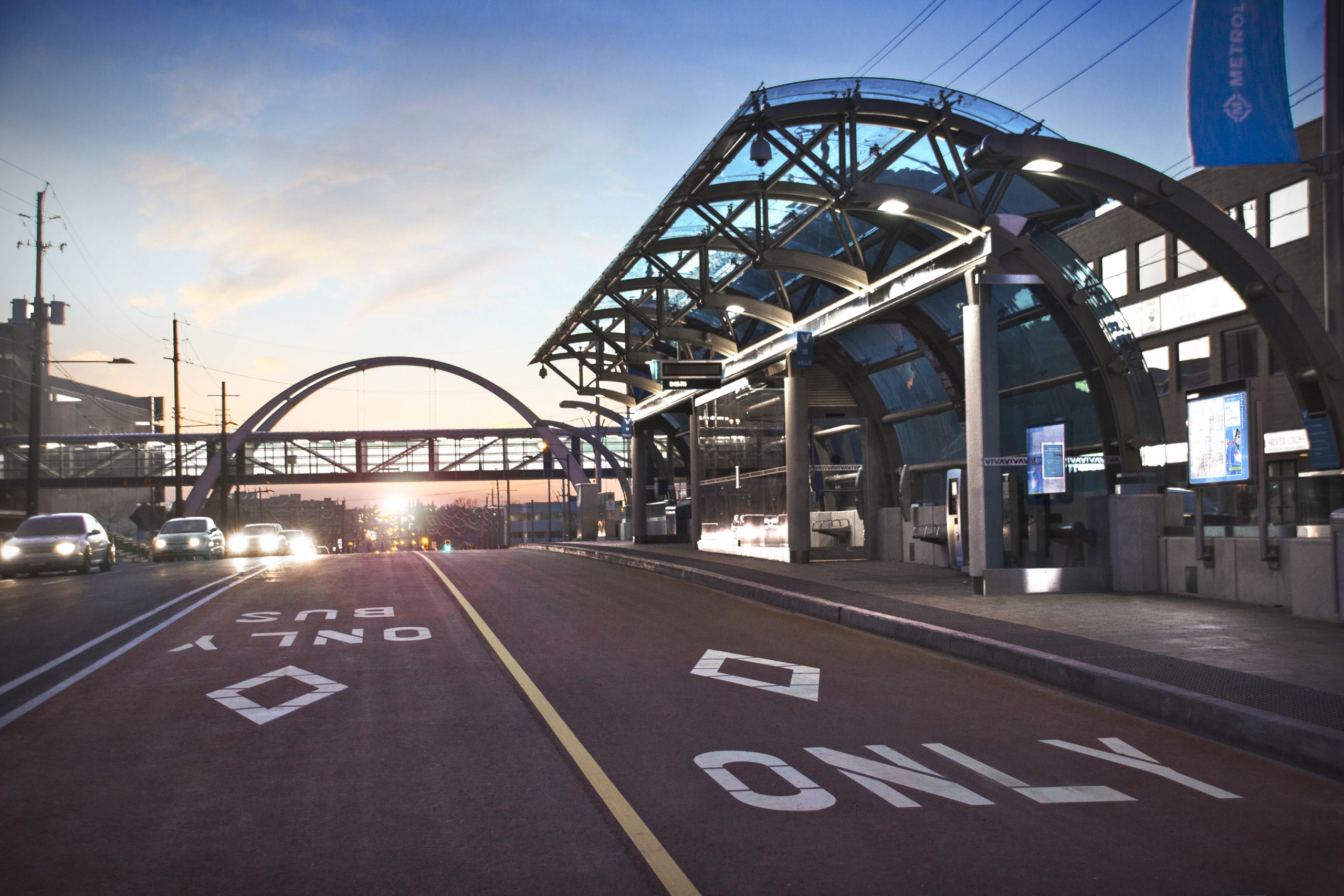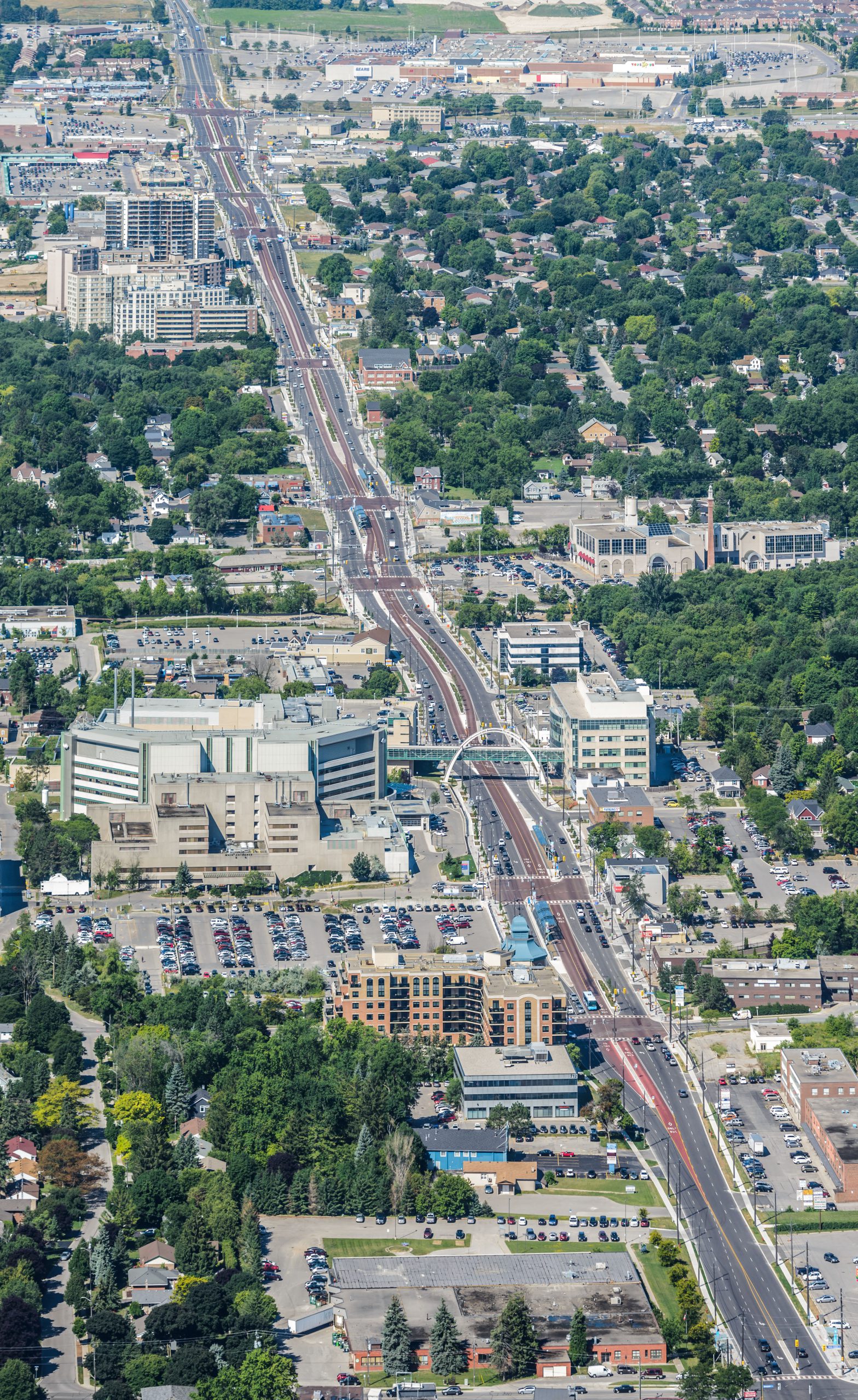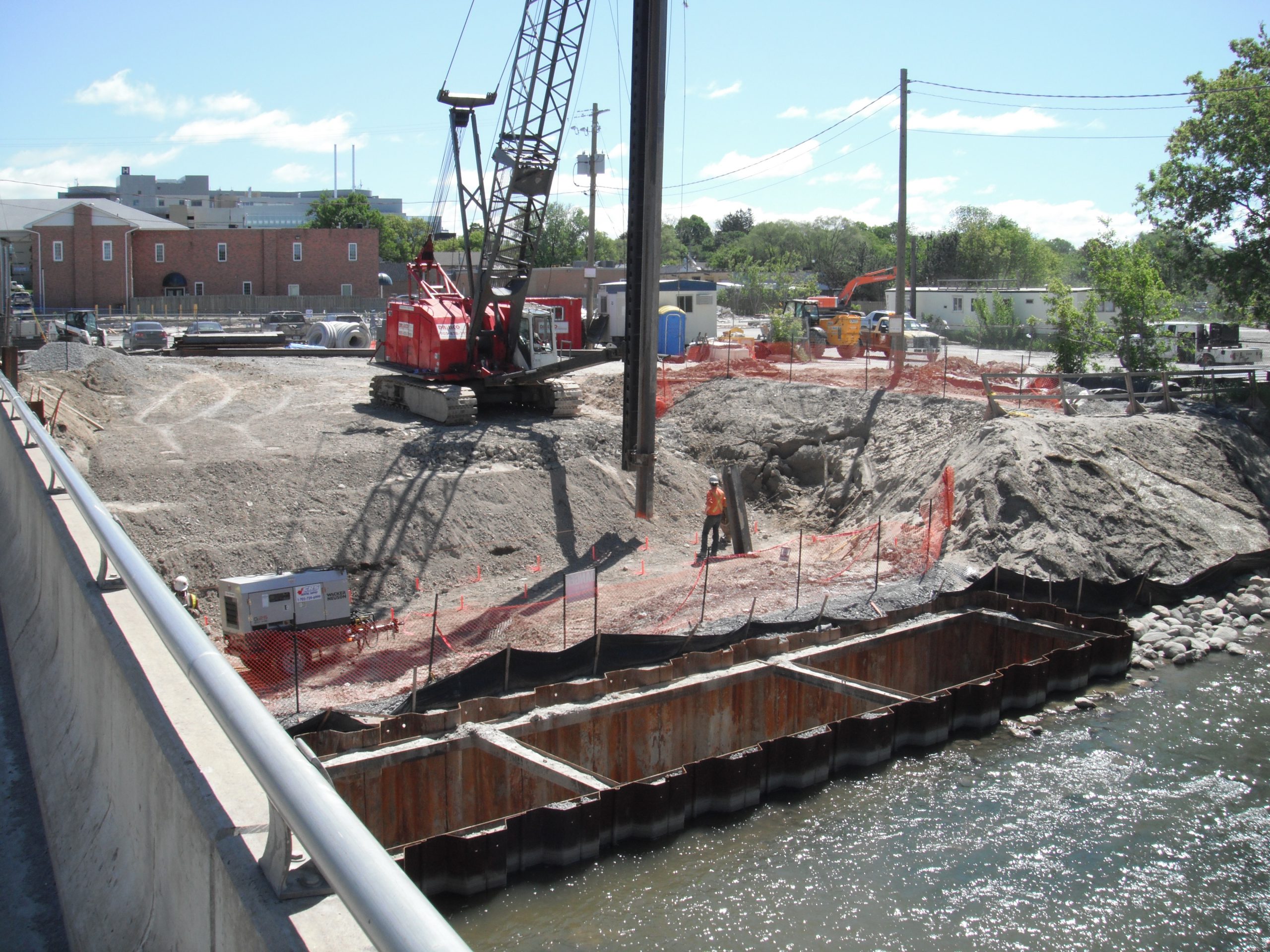vivaNext D1
Newmarket, Ontario
The region of York located North of Toronto has been experiencing rapid growth. VivaNext has been developed to facilitate community transit. The H2VMC phase is Valued at $158 million and is being built by Kiewit-EllisDon (KED) Joint Venture.
The work consists of widening 4.2 kilometres along Highway 7 between Highway 400 and the GO Bradford/Barrie Railway line in the city of Vaughan. This section of the vivaNext program comprises regular VIVA Platforms Stations and one Large Vaughan Metropolitan Centre (VMC) Station at the intersection of Highway 7 and Millway Street. The VMC Station (as seen in the above picture) will also house the upcoming extension of the Toronto-York Spadina subway system.
This project will provide KED with opportunities to show innovative building practices. Some of these practices include: building the large glass and steel VMC Station structure (45 metres long by 24 metres wide and 8.9 metres high), in the middle of a high traffic roadway, widening an existing 150m long bridge over Canada’s busiest train marshaling yard, extending two waterway culverts, building over 1,600m of retaining wall, relocating approximately 6km of multiple hydro primary and secondary circuits as well as telephone and cable lines (above and below ground). All of this work is to be done while maintaining three lanes of live traffic in each direction along Highway 7.
The vivaNext Program consisted of three segments of the overall Bus Rapid Transit (BRT) system in the York Region with expansion and construction of several overpass structures.
- D1: The project involved widening 3.3 km of Davis Dr. in Newmarket’s business core to add two dedicated centre bus rapidway lanes.
- H2VMC: The project included 4.4 km of rapidway, four state-of-the-art station platforms, the signature Vaughan Metropolitan Centre, pedestrian walkways and other infrastructure.
- H3: The project included adding two dedicated bus lanes to the existing six lanes on Hwy. 7; as well as widening of Apple Creek and Warden Avenue structures.
The vivaNext project involved building three sections of the global network of rapid bus transit within existing public transportation corridors located throughout York region, north of Toronto. This construction project is located 100% in an existing transport corridor and has 15 km of tracks dedicated to rapid transit by bus and 32 stations. In order to create space to build the expressway and the stations in the center of the existing road, the consortium team expanded the existing pavement on both sides, extended bridges and culverts and built several kilometers of retaining walls, allthewhile maintaining the circulation of vehicles and buses. The team had to relocate many public utilities and take intensive measures to maintain traffic to facilitate the implementation of these road works and limit the impact on road users. The consortium worked closely with public transport companies to incorporate the schedule of bus routes to the construction schedule and minimize the impacts on public transit. Major construction activities were limited to the schedule approved by the customer because during certain periods (overnight, from 9 p.m. to 5 a.m and on weekends), work was prohibited. In addition, the Kiewit team delivered this project below ADOT’s budget amount.
The vivaNext project team has won many awards for designing and building a transit system in an urban corridor with active public transport and allows users to move between urban centers and other destinations in the York region:
- Ontario Public Works Association – 2013 Project of the Year – transportation category, project over 50 M$; for its excellence in the management of public project and Engineering, Architecture and Construction
- American Public Works Association – 2014 Project of the Year – transportation category, project over $ 75 million; for good project performance
- Revue Roads & Bridges – The H3 segment named in the top 10 of road projects underway in 2015


